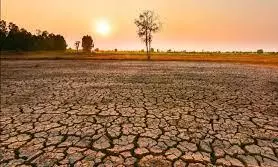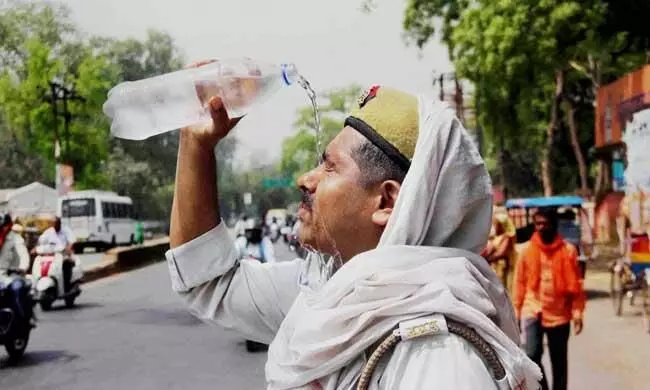
The earth is burning
text_fieldsIt is hot, very hot everywhere. Kerala is burning in extreme heat. It must be said that the country has never experienced such a high degree of scorching heat at the beginning of the day itself. Electricity consumption has reached an all-time high which is a clear proof of the heat. Kerala is headed for another natural spell of severe drought - like the previous disaster of the 2018 flood. Each day proves that none of the heat wave warnings was an exaggeration Not only Kerala, but almost all parts of India are also in a burning state. Monsoon is expected to be at least a month away. If the summer rains are likely to be delayed, the state will have to face a major power crisis and drought crisis. as well. Alternative measures will have to be sought to overcome the crisis. The electricity board is thinking of increasing the electricity tariff during the peak hour when power is used the most. It is like taking support away when people need it most. Hints about restrictions during peak hours are already circulating. The meteorological department has observed that the high temperature will continue in the coming days. Some districts are also expected to experience higher heat than the current one. Palakkad, Kozhikode, Kannur, Thrissur, Kottayam, and Alappuzha districts are struggling more in the summer heat. Last day in Erumaiyur, Palakkad, the mercury went above 40 degrees. In Thrissur, Kozhikode, and Kannur, the temperature is between 38 and 39 degrees.
Things have got to the point of people sweating it even in the mornings when it is comparatively pleasant. Climate experts point out that the phenomenon of increasing temperature at night is likely to push the situation to extreme temperatures. High humidity makes the heat feel harsh. If the atmosphere temperature is relatively low, if the humidity is high, the heat experienced will be much higher than the actual heat. The presence of moisture in the atmosphere (humidity) increases due to the high evaporation of water because the coastal state of Kerala is close to the sea and has many water bodies. In case of high humidity, the discomfort becomes severe as the body struggles to cope with it. This is also the main reason behind the forecasts about the risk of sunstroke in six districts. Along with this, the reason for ever-warming nights is the radiation being unable to escape back into space.
Eleven people who were at a function attended by Union Home Minister Amit Shah in Navi Mumbai, Maharashtra died due to sunstroke. It was at an event which ws conducted ignoring the weather warning that temperature would rise that those 11 died. Health workers point out that the reason for the serious consequences was sitting in the hot sun for hours during the Maharashtra Bhushan award ceremony held at a maidan in Kharghar. More than six hundred people felt sick. 50 people were admitted to various hospitals with serious problems. When people were left to die in the scorching sun just to listen to the minister's speech while the natural heat was raging, that can only be called man-made disaster.
There is no doubt that we will have to face extreme heat in the coming years if we do not act with proper planning. The main concern of governments and research centres should be how to protect humans and other living beings from this furnace without further harm. Terms like 'global warming' and 'climate change', which were only heard years ago, are becoming everyday realities for people. At least now, the public and government need to adopt sustainable development models that do not harm the planet. Every construction should be in harmony with nature. When a tree is cut, two new ones should be planted and protected. Constructions causing environmental pollution should be stopped within the tri-level panchayat system itself. Legislation should be strengthened to prevent construction on demolished hills and filled wetlands. A place like Kerala, which used to be habitable in any climate, today has to face disasters in summer and in monsoon alike. Let there be natural forests instead of concrete forests. Everyone has his own role to play in reducing disasters and preventing their recurrence.








